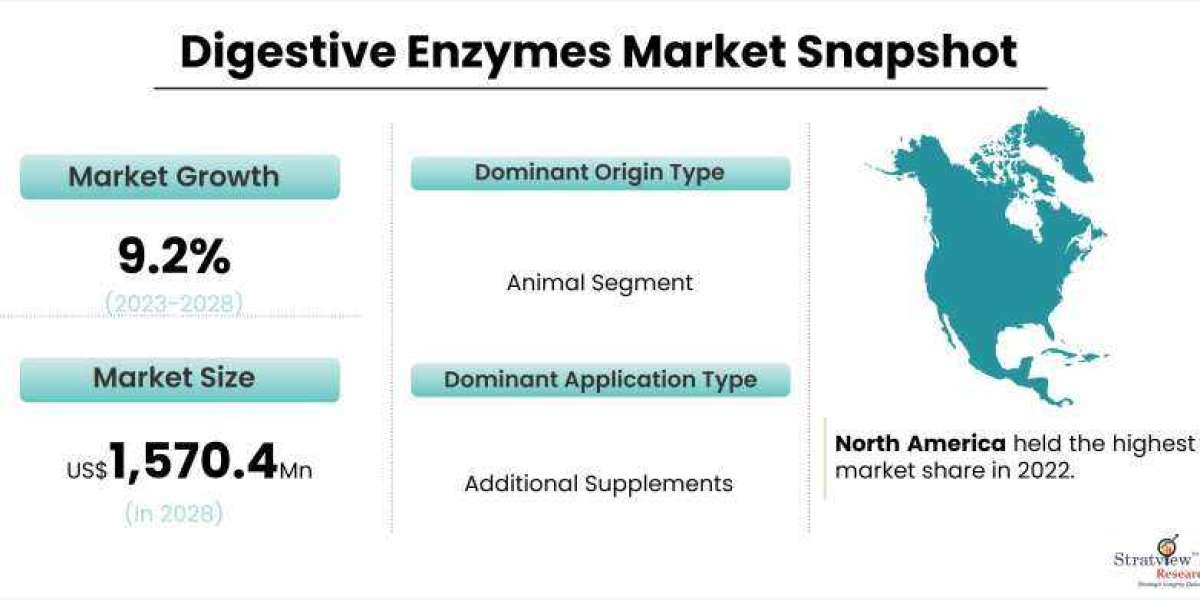Digestive enzymes are no longer confined to the realm of dietary supplements and health products alone. Over the years, these natural proteins have made a significant impact on the food industry and product development. From improving the digestibility of various food items to enhancing nutritional value, digestive enzymes have become a valuable tool for food manufacturers. This article explores the impact of digestive enzymes on the food industry and how they have influenced product development. The digestive enzymes market is estimated to grow from USD 925.8 million in 2022 to USD 1,570.4 million by 2028 at a healthy CAGR of 9.2% during the forecast period.
- Improved Digestibility:
One of the most significant contributions of digestive enzymes to the food industry is their role in improving digestibility. Enzymes like amylase, protease, and lipase aid in breaking down complex carbohydrates, proteins, and fats, respectively, into simpler forms during food processing. This process makes the nutrients more accessible to the human digestive system, promoting better nutrient absorption and overall digestive health. Food items that are easier to digest are particularly beneficial for individuals with digestive disorders or those with specific dietary restrictions.
- Gluten-Free and Lactose-Free Products:
Digestive enzymes have been instrumental in the development of gluten-free and lactose-free food products. For individuals with celiac disease or gluten sensitivity, the enzyme "prolyl endopeptidase" is used to degrade gluten proteins in gluten-free food items, making them safe for consumption. Similarly, the enzyme lactase is employed to break down lactose in dairy products, creating lactose-free alternatives for lactose-intolerant consumers.
- Enhanced Nutritional Value:
The use of digestive enzymes in food processing can also enhance the nutritional value of certain products. Enzymes can break down anti-nutrients and compounds that inhibit nutrient absorption, leading to better nutrient bioavailability. For instance, phytase is used to degrade phytic acid in grains, legumes, and seeds, which can block the absorption of essential minerals like zinc, iron, and calcium. By reducing phytic acid content, the nutritional value of these foods increases.
- Meat Tenderization:
Proteolytic enzymes like papain and bromelain are employed in the meat industry for their ability to tenderize meat. These enzymes break down tough muscle fibers, resulting in more tender and succulent meat products. Their use reduces the need for harsh mechanical methods of tenderization, thus preserving the natural texture and flavor of the meat.
- Functional Foods and Beverages:
Digestive enzymes are increasingly finding their way into functional foods and beverages. Enzyme-fortified products are marketed for their digestive health benefits, appealing to health-conscious consumers looking for natural solutions to gut-related issues. Enzymes are being incorporated into various products such as yogurts, smoothies, protein bars, and meal replacement shakes to enhance digestibility and nutrient absorption.
- Clean Label Solutions:
In response to consumer demand for clean label products, digestive enzymes are becoming a popular choice for food manufacturers. Enzymes offer a natural way to improve food quality without the need for synthetic additives or processing aids. As a result, many companies are turning to enzymes as clean label solutions to address formulation challenges and meet consumer expectations.
Conclusion:
The impact of digestive enzymes on the food industry and product development has been substantial and continues to evolve. From facilitating better digestibility and improving nutritional value to enabling the creation of specialized dietary products, digestive enzymes have become an essential tool for food manufacturers. As consumers become more health-conscious and demand natural, clean label options, the integration of digestive enzymes into various food products is likely to grow, shaping the future of the food industry in a positive and health-promoting direction. However, it is essential for food manufacturers to remain mindful of dosage, processing conditions, and potential allergenicity while incorporating enzymes into their products, ensuring both safety and efficacy for consumers.
please send your inquiry at [email protected].






